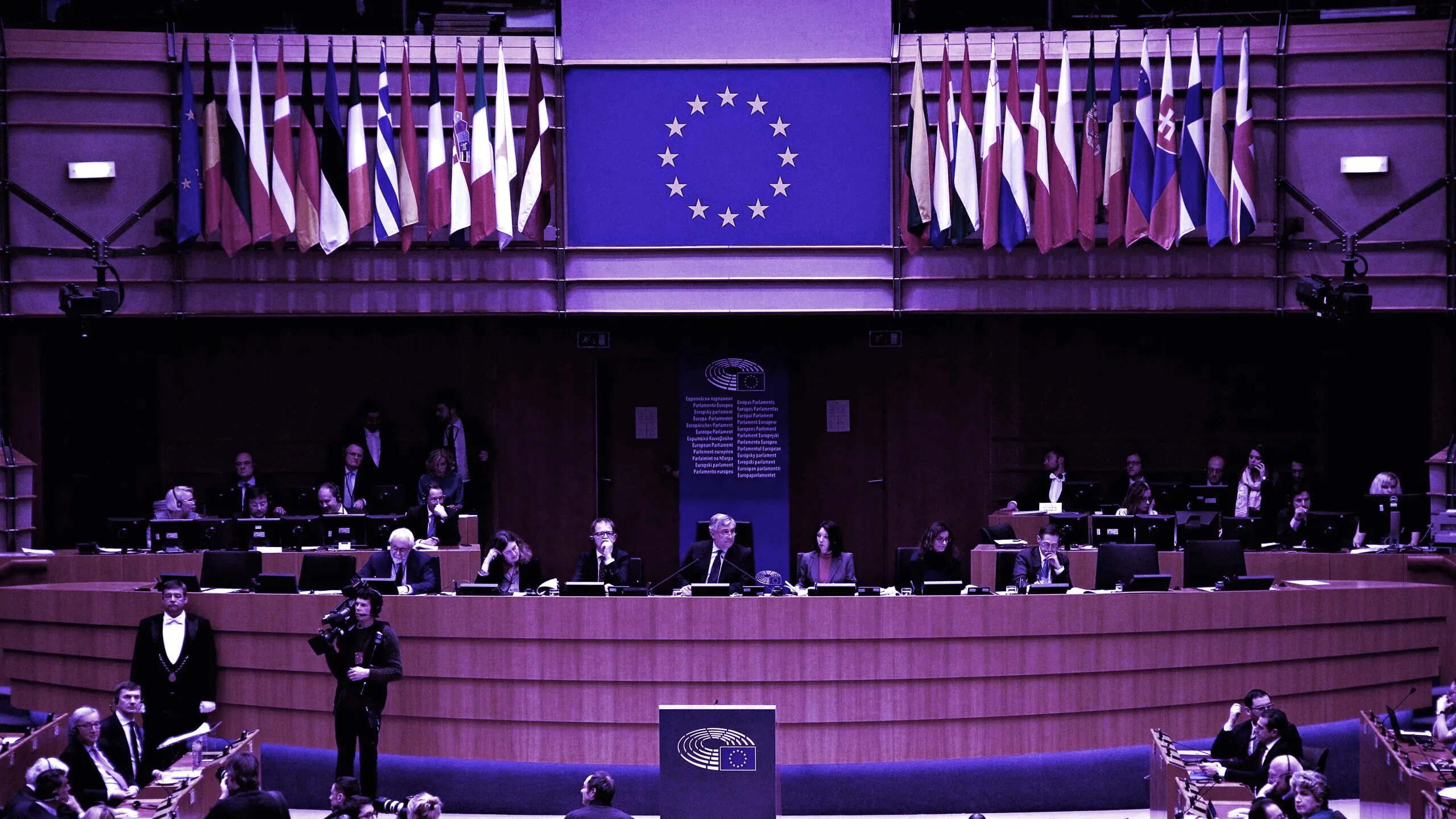In brief
- The Markets in Crypto Assets bill would provide a regulatory framework throughout Europe.
- A vote on the bill was delayed last week over language concerning "environmentally unsustainable consensus mechanisms."
- That language has now been removed.
European Union lawmakers have scrapped a section of a pending bill that could have made it illegal for crypto services to deal in coins based on proof-of-work—the consensus mechanism Bitcoin and Ethereum use to "mine" new currency and secure their networks.
The Markets in Crypto Assets (MiCA) bill, put to the European Parliament by a coalition spearheaded by Stefan Berger, was set for a vote on Monday, February 28. But it was delayed late last week after many in parliament objected to a paragraph regarding proof of work.
Berger confirmed today that paragraph 61 (9c) of the bill has been removed altogether, though the vote has yet to be rescheduled.
MiCA has the potential to reshape cryptocurrency adoption in Europe. Originally proposed in September 2020, it would require the European Central Bank to "establish uniform rules for crypto-asset service providers and issuers at EU level." In short, it would serve as a regulatory framework for crypto across the European Union—something the U.S. and other nations are still struggling to create.
But one passage specifically got crypto users' attention. It mandated that by 2025, no crypto assets could be created, sold, or traded within the EU if they used "environmentally unsustainable consensus mechanisms." To avoid a ban, crypto assets would have to meet "minimum environmental sustainability standards."
Opponents of the bill argued that it would equate to a de facto ban on Bitcoin and Ethereum mining in Europe, while also making it untenable for custodians to hold proof-of-work coins for clients.
Berger claims that wasn't lawmakers' intent. In announcing the delayed vote last Friday, he stated that "individual passages of the draft report can be misinterpreted & understood as a POW ban."
But environmental concerns are weighing on Europe, whose member states are trying to meet the climate standards agreed to in the Paris Agreement. Last year, Sweden financial regulator Finanspektionen recommended a ban on mining Bitcoin and other proof-of-work coins, arguing that the energy expenditure was not with the benefits.

